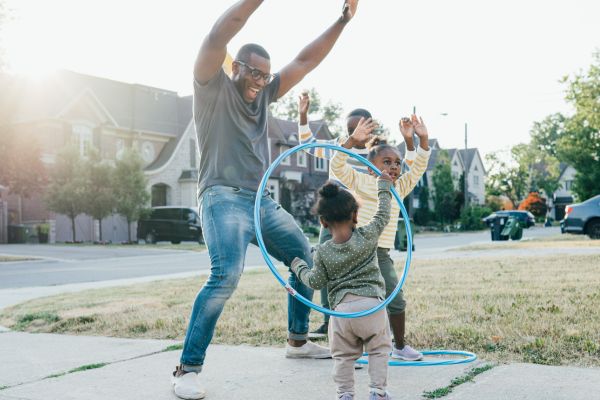 In 2008, nearly 136 thousand children were adopted. Of these about 37 percent were foster children adopted by the family of their placement. Children born and raised within their biological family are usually provided the opportunity to feel connected to their parents, siblings and grandparents long before they enter this world. Unfortunately, the same is not true for many adoption-eligible children. With foster care adoption, families are afforded the opportunity to learn about one another while giving the child a safe and comfortable setting in which to thrive. Through the support system offered by foster agencies, families are provided with the necessary services that aid in assuring that children are placed in appropriate homes. When a child becomes eligible for adoption, the foster parents are second only to biological relatives for the opportunity to make the child a permanent part of their family.
In 2008, nearly 136 thousand children were adopted. Of these about 37 percent were foster children adopted by the family of their placement. Children born and raised within their biological family are usually provided the opportunity to feel connected to their parents, siblings and grandparents long before they enter this world. Unfortunately, the same is not true for many adoption-eligible children. With foster care adoption, families are afforded the opportunity to learn about one another while giving the child a safe and comfortable setting in which to thrive. Through the support system offered by foster agencies, families are provided with the necessary services that aid in assuring that children are placed in appropriate homes. When a child becomes eligible for adoption, the foster parents are second only to biological relatives for the opportunity to make the child a permanent part of their family.
Building Connections
Foster care adoptions give children the opportunity to get to know their new families that many others are not afforded. They are able to attend counseling with their new parents and siblings which gives them the chance to work out any issues that may arise. These children are also able to get to know extended family members and begin learning about their customs and traditions. It is important to remember that biological children are most often loved, and deeply cared for long before the child is born. Adopted children have the right to the bonds that tie a family together. Additionally, families have a responsibility to insure that these children are given the same love and respect as any other member. Foster children have a better chance of obtaining this connection than non-foster adoption children because they have already spent a great deal of time in the home and around other family members before the adoption takes place.
Building Respect
Children born into a home are taught the rules, customs and traditions of their families from the moment of their birth. Whether it be issues of morality or virtue, biological children grow up learning from the beginning what is, and what is not to be tolerated in their parents’ home. Many foster children are placed in homes that far differ from their parents’ homes. A sudden change in these circumstances can alter the life of a child in irreparable ways. Foster care gives potential adoptive parents the opportunity to be sure that the child they are accepting as a part of their family will respect their rules and traditions. They can be sure that other children in their home will be safe from cruelty and disrespect. Not only that, the children themselves are given the chance to not only learn, but also, practice the skills needed to successfully integrate into their new family.
Insuring a family’s success following an adoption is vital to the health and well-being of everyone involved. Children must be given the chance to integrate slowly. Drastic changes in how a household is ran and what is important to a child’s new family play a big part in the success or failure of a new family dynamic. Those children must be given the chance to learn and change before being thrust into new situations. They must also be sure they will be fully loved and accepted by their new family. Foster care adoptions give these opportunities to everyone involved and creates a solid base for the child’s growth and success in the home.
Author: Children First FFA
Published: January 4, 2017




